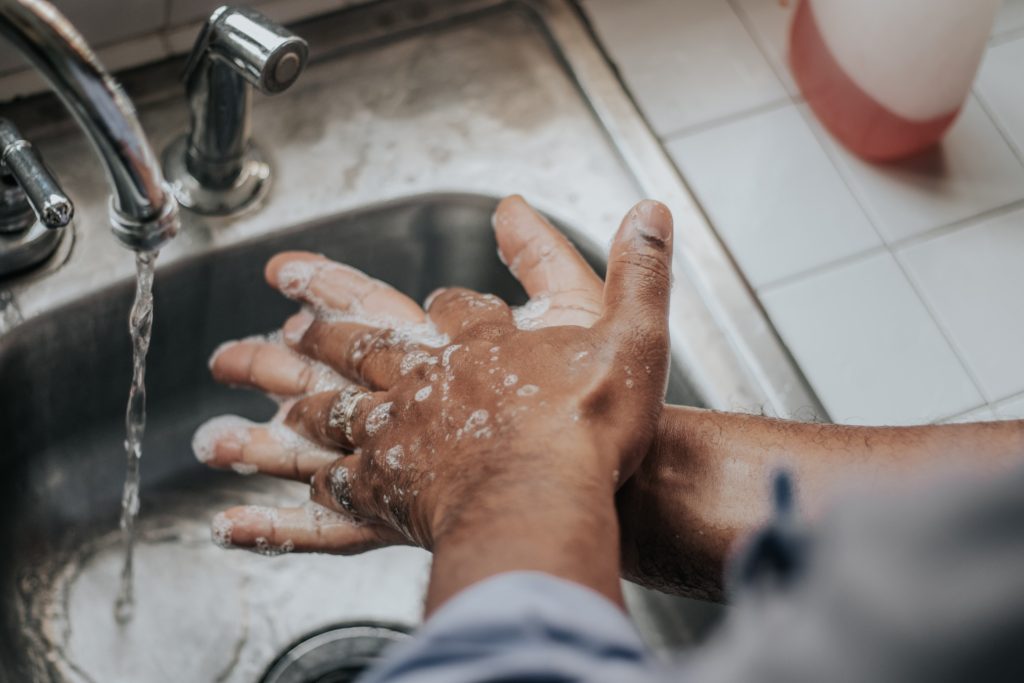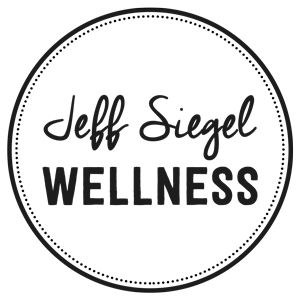

Do you wash your hands daily?
Why?
Because living means getting dirty.
All-day you come into contact with people, packaging, pets, surfaces, and food. Fingers get sticky. Palms get grimy. Just because it looks clean doesn’t mean it is.
Washing your hands prevents the spread of disease. And frankly, it just makes you feel good.
With clean hands, you can go out and interact with confidence. This is why hygiene is so important, not just for your own health, but out of respect for everyone you come into contact with.
So now ask yourself,
“How often do you ‘clean’ your mind?”
…Interesting question…
I see the possible answers bubbling up.
“My mind isn’t dirty.”
Sure it is. Check again.
“Watching my favorite drama helps me decompress.”
Sure, watching Netflix feels pleasant and relaxing. It certainly can move your attention away from other stressors and distract you. But when you’re done watching, the mental grime is still there.
“Exercise helps me clear and freshen my mind.”
Exercise can refresh your mind, but it is a roundabout approach. It forces resources to be diverted elsewhere, releasing hormones that can shift your mood but don’t necessarily get rid of all accumulated mental junk.
“Ok, well then it has to be a good night’s sleep,”
True, sleep is a powerful mental reset (if you’re lucky to get enough of it). But sleep alone is often not enough for optimal mental functioning in the overstimulating world we live in. You need another cleansing to help manage the stickiness of daily life.
This is where mindfulness comes into play.
Mindfulness Is the Antidote to Daily Dirt


Mindfulness helps directly deal with the overwhelming amount of processing, decision making, assumption generating, future-simulating, and sensory integration you do on a daily basis.
Every passing thought, feeling, image, memory, and sensation leaves a trace. These imprints on your mind might seem insignificant, but they build up a residue over time. By the end of the day, your mind is ‘dirty’, your vision is cloudy, and your judgment is imprecise.
Mindfulness helps you detach from the daily ‘dirt’ by creating space to see what’s clinging to your mind. It brings you to face-to-face with what’s true for you right now. This way can notice if you’re carrying around unnecessary emotional baggage or acting unconsciously from an event you haven’t fully processed.
Mindfulness allows you to take stock of what’s actually going on for you, with kindness and curiosity. From here, you can decide what to do with it all.
- You can decide whether it’s worth holding on to that heated conversation from earlier with your partner.
- You can decide whether to let go of that story you’ve been telling yourself about being too afraid or unprepared.
- You can decide whether to feel that anger and transform it into courageous and compassionate action or let it stew and brew beneath the surface.
A mindfulness practice allows you to ‘clean’ your mind of all these undigested emotions and disempowering beliefs by bringing your attention back to them with kindness and care.
The challenge is that unlike physical dirt, it’s difficult to know when your mind is full of grime. There’s isn’t the tangible signs of being covered with an unwanted substance.
But the more you practice mindfulness, the more sensitive you become to what a clear and clean mind is like. You begin to notice when your mind feels cluttered and cloudy. You see the unprocessed and unconscious stuff accumulate, and now you have a tool–mindfulness meditation–to help you tidy up.
Take Care of Your Psychological and Interpersonal Hygiene — For Yourself & For Others


Washing your hands is not only good for your health, but it is also respectful of others. You don’t want to accidentally pass your germs onto them.
Similarly, mindfulness can help you maintain good psychological hygiene. It is one way to become more aware when you are projecting your mental ‘dirt’ on others.
Mindfulness, along with shadow work and other practices, prevents you from unconsciously spreading biases, reactive habits, and unwholesome judgments. It’s part of a self-care package that is essential in the world live in.
If you have reservations or hesitations about practicing mindfulness, I address the most important questions to ask before starting in this article.
Think of it this way: if it’s not enough to keep your mind clean for yourself, do it for others. They not only deserve to have your best self present during the day, but they also don’t want to be responsible for managing and cleaning up after your mental mess.
While you’re washing-up, breathe and smile 🙂
~ Jeff Siegel
P.S. Do you want to learn how to start practicing mindfulness?
Sign up for the FREE 14 Day Learn to Meditate Course with me, and I’ll teach you the basics so you can practice regularly on your own.
If you’d like to explore working together, you can schedule a private 20-min consultation call with me.




3 Comments